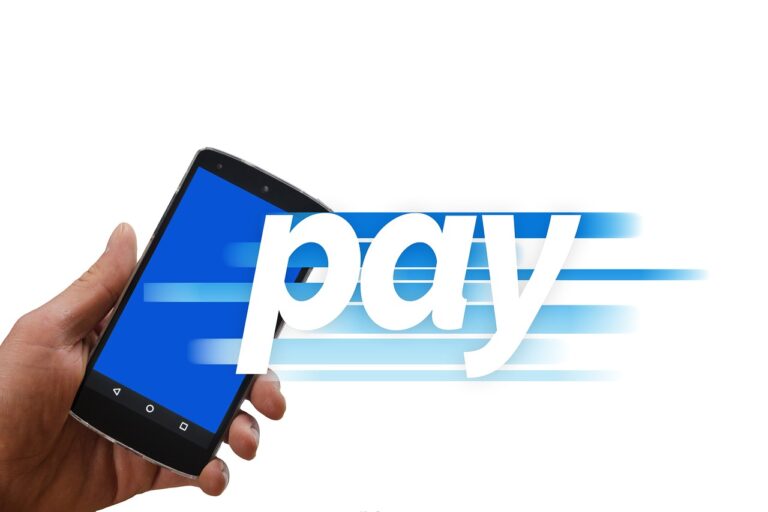How to Avoid Bank Fees: Tips for Keeping More of Your Money

Bank fees can silently chip away at your hard-earned money, reducing the value you get from your banking services. Whether it’s monthly maintenance fees, ATM fees, or overdraft charges, these costs can add up quickly. Fortunately, with a bit of strategy and vigilance, you can minimize or completely avoid many of these fees. Here’s a comprehensive guide on how to avoid bank fees and keep more of your money in your account.
Choose the Right Bank
The first step to avoiding bank fees is selecting the right bank. Different banks have different fee structures, and some institutions are more customer-friendly than others. Here’s what to look for when choosing a bank:
- Fee-Free Accounts: Many banks offer checking and savings accounts with no monthly maintenance fees. Online banks and credit unions often have lower fees compared to traditional brick-and-mortar banks.
- Low or No Minimum Balance Requirements: Look for accounts that don’t require a high minimum balance to waive fees.
- ATM Network: Choose a bank with an extensive ATM network or one that reimburses out-of-network ATM fees.
- Transparent Fee Policies: Ensure the bank provides clear information about all potential fees and ways to avoid them.
Take the time to compare different banks and account options to find one that aligns with your financial habits and needs.
Maintain Minimum Balance Requirements
Many banks waive monthly maintenance fees if you maintain a certain minimum balance in your account. Be sure to know the specific requirement for your account:
- Check Minimum Balance Policies: Verify the minimum balance you need to keep in your account to avoid fees. This information is usually available in the account terms and conditions.
- Set Alerts: Use online banking tools to set up balance alerts. These alerts can notify you when your account balance drops below the required minimum, helping you avoid unexpected fees.
- Link Accounts: Some banks offer linked accounts, where keeping a combined minimum balance across multiple accounts can help you avoid fees on all of them.
Maintaining the required balance is an easy way to keep your account fee-free.
Utilize Direct Deposit
Many banks waive monthly maintenance fees if you set up direct deposit. Having your paycheck directly deposited into your account benefits both you and the bank:
- Set Up Direct Deposit: Arrange with your employer to have your paycheck directly deposited into your bank account. This usually involves providing your bank account number and routing number to your employer’s payroll department.
- Meet Monthly Deposit Requirements: Some banks waive fees if you receive a certain amount of direct deposits each month. Ensure you meet this requirement to avoid monthly fees.
Direct deposit offers the added benefit of giving you quicker access to your funds compared to paper checks.
Use In-Network ATMs
ATM fees can quickly add up if you frequently withdraw cash from out-of-network ATMs. Here’s how to avoid these fees:
- Locate In-Network ATMs: Use your bank’s ATM locator tool on their website or mobile app to find fee-free ATMs near you.
- Withdraw Larger Amounts Less Frequently: If you often need cash, consider withdrawing larger amounts less frequently to minimize the number of ATM transactions.
- Choose a Bank with Fee Reimbursement: Some banks, especially online banks, offer ATM fee reimbursement. This can compensate for fees charged by other banks’ ATMs.
Planning your cash withdrawals can help you avoid unnecessary ATM fees.
Set Up Overdraft Protection
Overdraft fees can be hefty, but they’re avoidable with a few simple steps:
- Opt for Overdraft Protection: Enroll in your bank’s overdraft protection service. This service typically links your checking account to a savings account, credit card, or line of credit, covering transactions if your checking account balance is insufficient.
- Monitor Your Account Balance: Regularly check your account balance to avoid overdrawing. Online and mobile banking tools make this easy with real-time updates.
- Set Up Low Balance Alerts: Enable alerts that notify you when your account balance is low, allowing you to take action before overdraft fees occur.
Overdraft protection provides a safety net and helps you avoid costly fees.
Avoid Paper Statements
Many banks charge a fee for paper statements. Switching to electronic statements is an easy way to save money:
- Opt for E-Statements: Sign up for electronic statements through your bank’s online banking portal. This option is usually free and allows you to access your statements anytime.
- Download and Save Statements: Keep digital copies of your statements for your records. You can download and save them to your computer or cloud storage.
Switching to e-statements is not only cost-effective but also environmentally friendly.
Use Bill Pay Services
Paying bills through your bank’s online bill pay service can help you avoid check fees and late payment fees:
- Set Up Bill Pay: Register for your bank’s online bill pay service and add your billers. You can schedule payments in advance to ensure timely delivery.
- Automate Recurring Payments: Set up automatic payments for recurring bills like utilities, rent, and loans. This ensures you never miss a payment and avoids late fees.
- Track Payment History: Keep an eye on your payment history to confirm that all bills are paid on time.
Online bill pay is convenient, helps maintain your payment history, and prevents late payment fees.
Be Mindful of Foreign Transaction Fees
If you travel abroad or make purchases from international vendors, be aware of foreign transaction fees:
- Use Fee-Free Cards: Choose credit or debit cards that don’t charge foreign transaction fees. Many travel-focused credit cards offer this benefit.
- Withdraw Local Currency in Bulk: If you need cash abroad, withdraw larger amounts to minimize the number of ATM transactions and associated fees.
- Inform Your Bank of Travel Plans: Notify your bank before traveling to avoid any issues with card usage and to inquire about the best ways to access your money overseas.
Avoiding foreign transaction fees keeps more of your money available for your travels.
Regularly Review Your Account Statements
Regularly reviewing your account statements helps you stay aware of any fees and take corrective action:
- Check for Unusual Fees: Review your monthly statements for any unexpected fees. If you notice any discrepancies or unauthorized charges, contact your bank immediately.
- Look for Fee Changes: Banks sometimes change their fee structures. Stay informed about any changes that may impact your account.
- Negotiate Fees: If you see fees that you think are unwarranted, call your bank and request a waiver. Banks may waive fees as a courtesy, especially for loyal customers.
Being proactive ensures you catch and resolve fee-related issues promptly.
Take Advantage of Bank Promotions
Banks often run promotions for new accounts or services that can help you avoid fees:
- New Account Offers: Look out for promotions that offer fee waivers, cash bonuses, or higher interest rates for opening a new account and meeting certain criteria.
- Referral Programs: Some banks offer bonuses for referring new customers. This can be an easy way to earn extra cash or account credits.
- Promotional Rates and Products: Take advantage of promotional CD rates, high-yield savings accounts, or other special offers that can enhance your banking benefits.
Participating in promotions can provide excellent value and reduce your banking costs.
In conclusion, avoiding bank fees requires a strategic approach to managing your accounts and selecting your banking services. By choosing the right bank, maintaining minimum balances, using direct deposit, utilizing in-network ATMs, setting up overdraft protection, switching to e-statements, using bill pay services, being mindful of foreign transaction fees, regularly reviewing account statements, and taking advantage of promotions, you can significantly reduce or eliminate bank fees. These tips help you keep more of your money, enhancing your overall financial well-being. Here’s to smarter banking and maximizing the benefits of your financial resources!Run
⌘
↵






